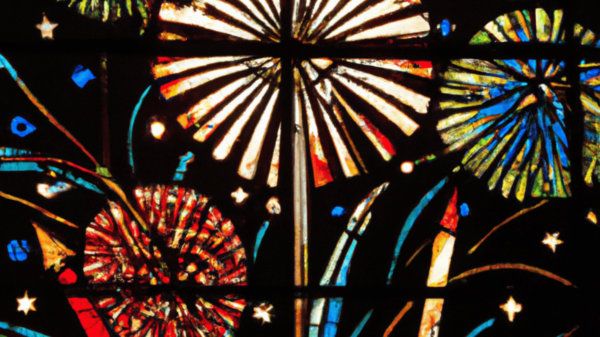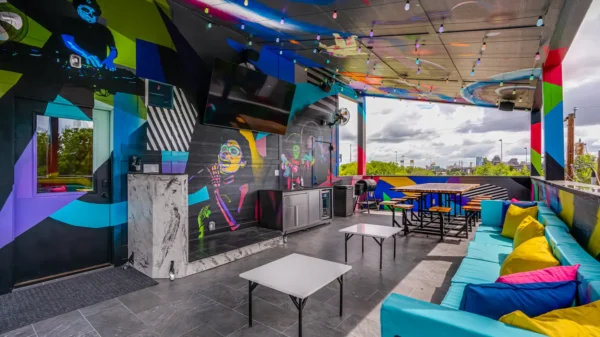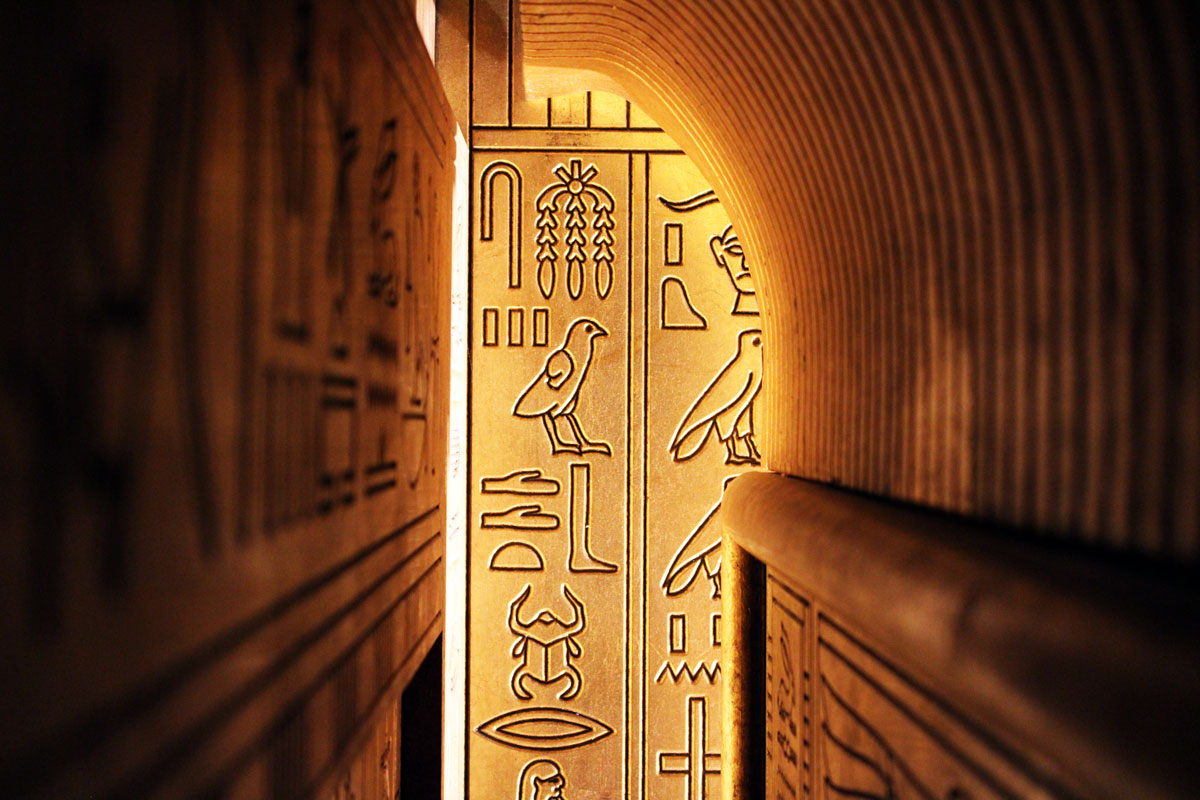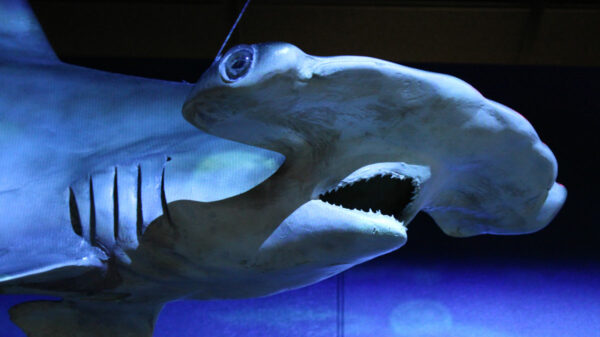The King Tut’s Tomb Discovery Experience at the Houston Museum of Natural Science presents a rare chance to immerse yourself in one of the most remarkable archaeological discoveries ever made.
We had a chance to speak with Kathleen Havens, Director of Curriculum and Content for the museum.
Along with Tom Hardwick, Consulting Curator of Egyptology for HMNS, she developed the written and spoken content for the exhibition.
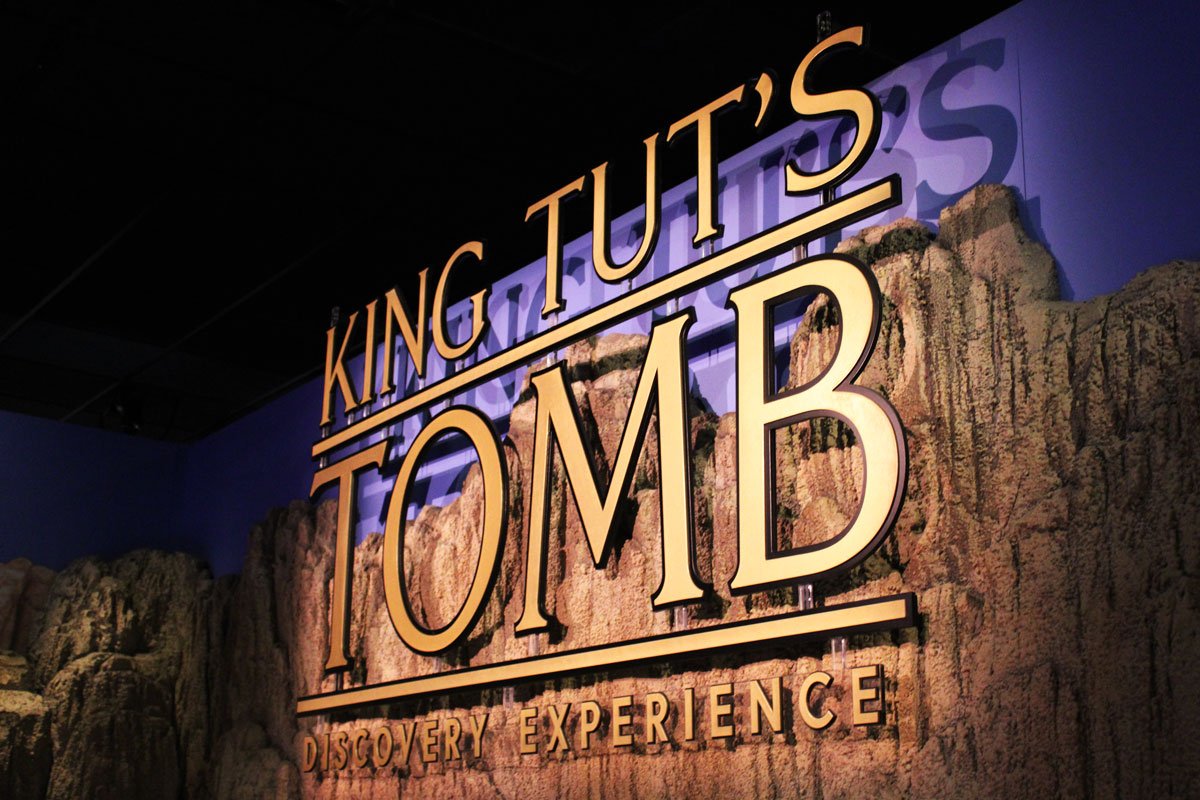
Experience King Tut’s Tomb Discovery Experience at the Houston Museum of Natural Science | Photography ©️ A Texas Guide/Alberto Graulau
Nice to meet you Kathleen! You have worked for the Houston Museum of Natural Science (HMNS) for the past 27 years. Tell us what makes this exhibit particularly special.
We set out to bring visitors the same sense of wonder and astonishment that Howard Carter first experienced 100 years ago when he discovered the tomb of King Tutankhamun in the Valley of the Kings.
This exhibition space is near a 1:1 scale footprint of the actual tomb. Visitors enter the tomb through a forced perspective passageway which creates the illusion of descending into the antechamber allowing visitors to experience the wonder of discovering a tomb that had remained hidden for over 3,000 years!
Also see: Our Shark Exhibit Houston Story
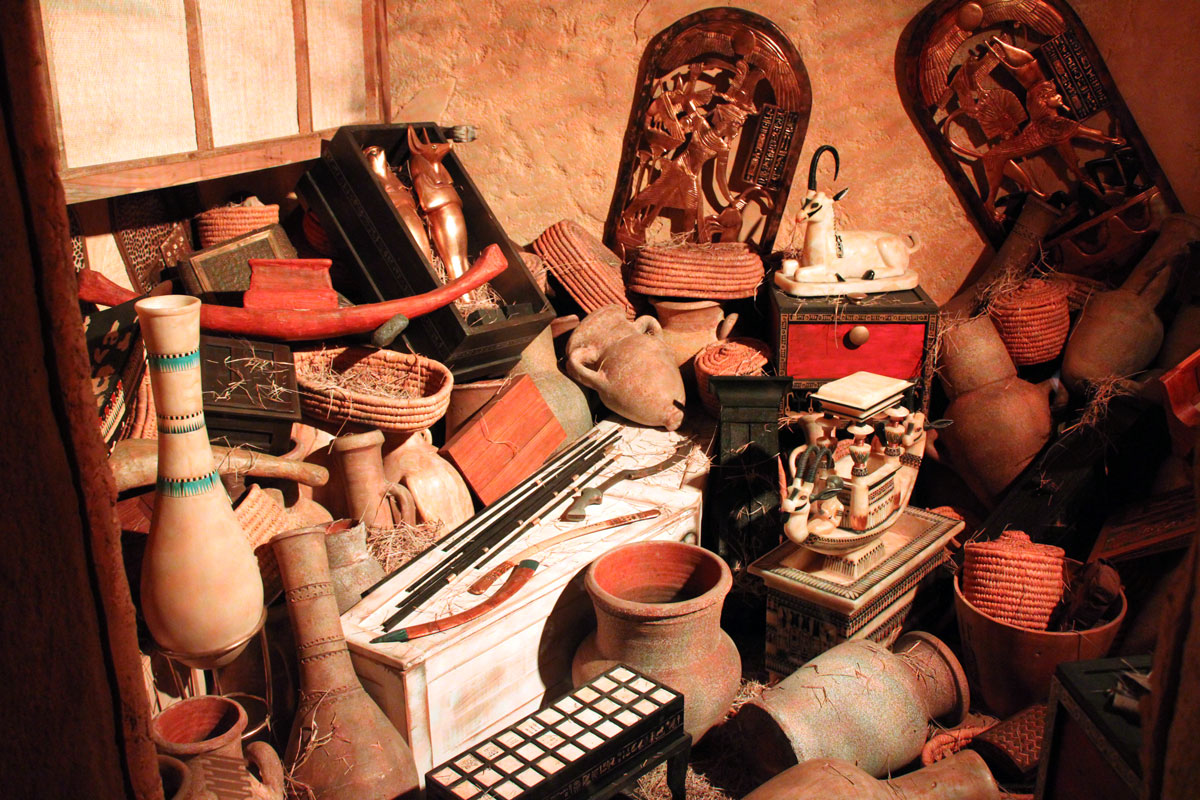
King Tutankhamun’s Tomb was Discovered in the Valley of the Kings | Photography ©️ A Texas Guide/Alberto Graulau
High quality reproductions of objects from the tomb are displayed in the manner in which they were originally found throughout the tomb complex. This allows visitors to get closer to the objects than would typically be allowed. Visitors will also discover how Tutankhamun’s mummy was enshrined inside a series of four gilded wooden shrines that surrounded a stone sarcophagus containing three nesting coffins. These items which provided magical protection to the King’s mummy are displayed as a cross-section, which has never before been attempted.
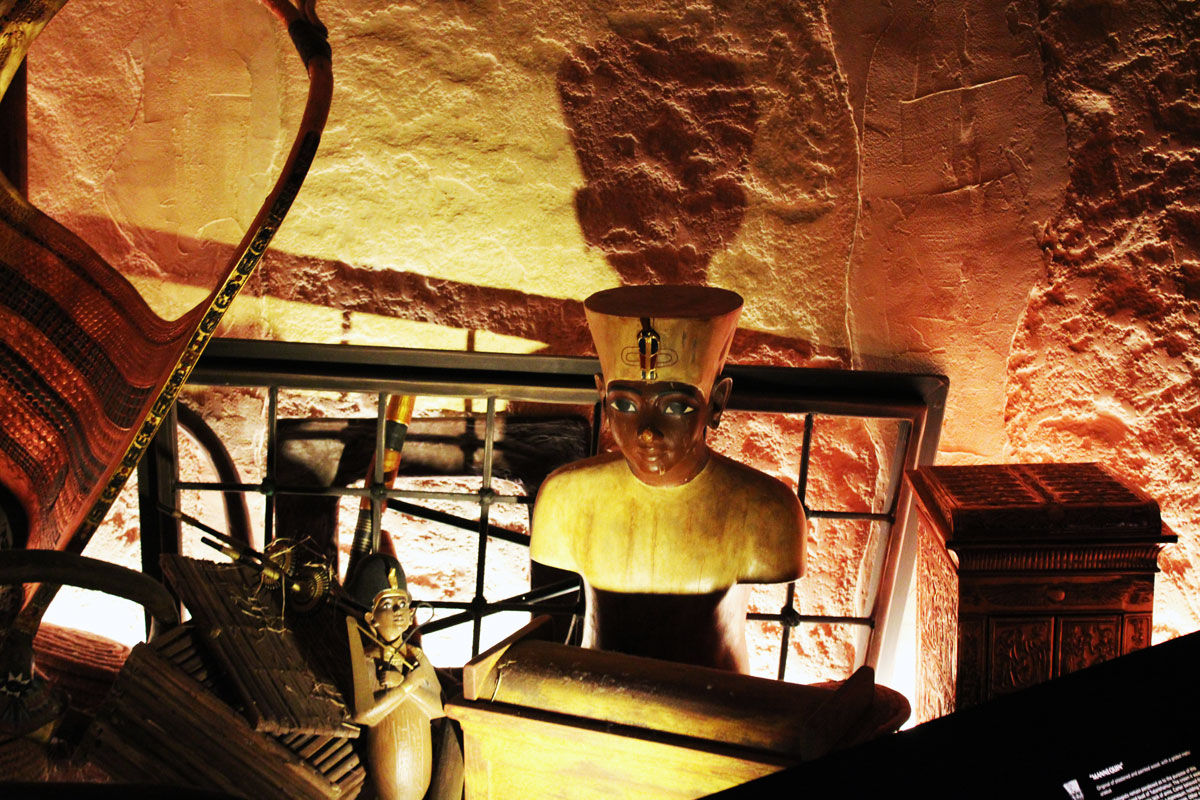
The Reproduction of Artifacts Found in King Tut’s Tomb Allow an Open Display | Photography ©️ A Texas Guide/Alberto Graulau
Visitors will also experience a re-creation of the burial chamber that features projected animations of the wall paintings covering all four walls. These animations translate the ancient hieroglyphic texts and images which commemorated Tutankhamun’s funeral and predicted his journey through the afterlife.
Other exhibition highlights include informative videos about the discovery of the tomb and Tutankhamun’s life, an excavator’s tent with tools, and an interactive video game. There is also a touchable display featuring rocks, semiprecious stones, and metals like those used to create some of the objects found in the tomb.
HMNS developed this exhibit in-house to celebrate the 100th anniversary of the discovery of King Tutankhamun’s tomb.
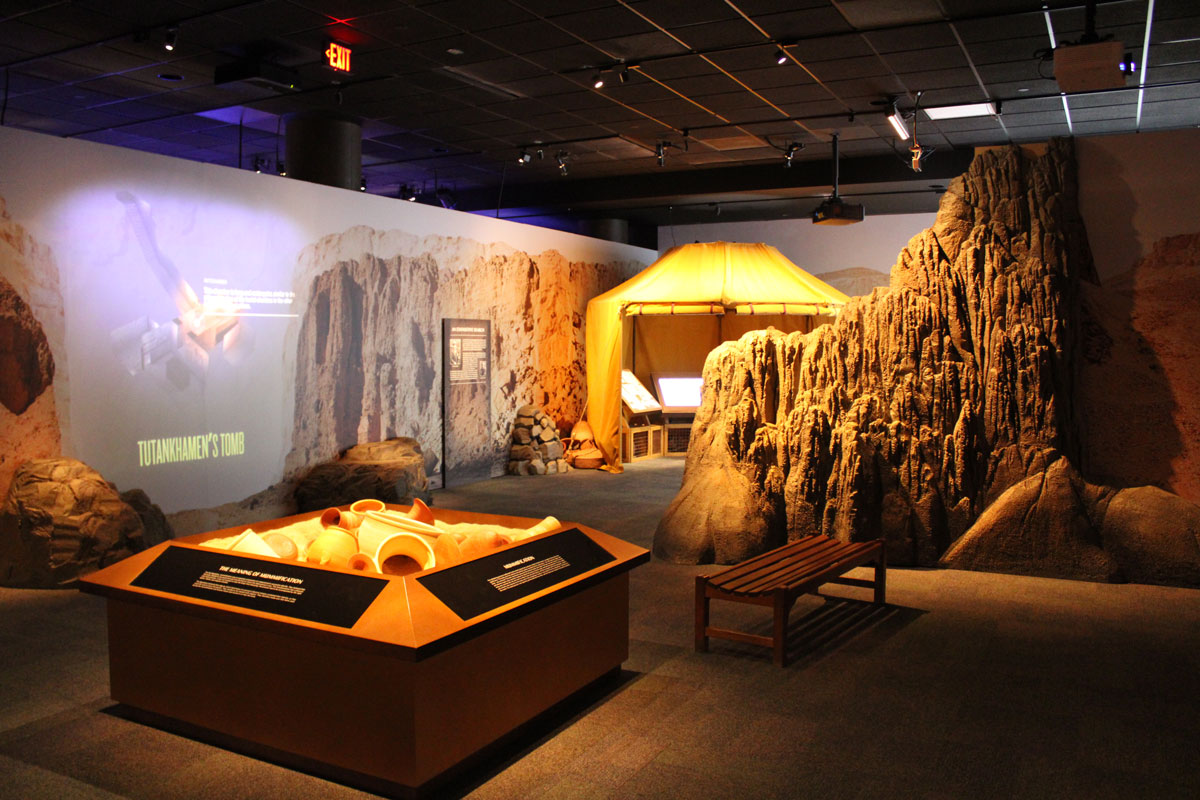
Enter the Valley of the Kings where King Tut’s Remains Were Found | Credit: Photography ©️ A Texas Guide/Alberto Graulau
Can you tell us a little bit more about your interest in this topic and how this exhibit came to be?
I saw the original Tut exhibit in New Orleans in the 1970’s and that experience was partially responsible for my passion for museums and why I ended up working at HMNS.
Tutankhamun’s tomb allowed us to peer into the lives of ancient Egypt’s royalty and see how they were laid to rest, surrounded by their possessions, in their transition to the afterlife. Our recreation allows the public to do the same.
The artifacts in this exhibit are high quality reproductions of the objects from the tomb. They were created by the Egyptian Ministry of Antiquities (they have access to all of the original artifacts). The reproductions allow for the artifacts to be displayed openly in the manner in which they were originally discovered, something that would not otherwise be possible.
Interesting side note: With the Grand Egyptian Museum nearing completion, it is unlikely that the authentic artifacts will be traveled in the future.
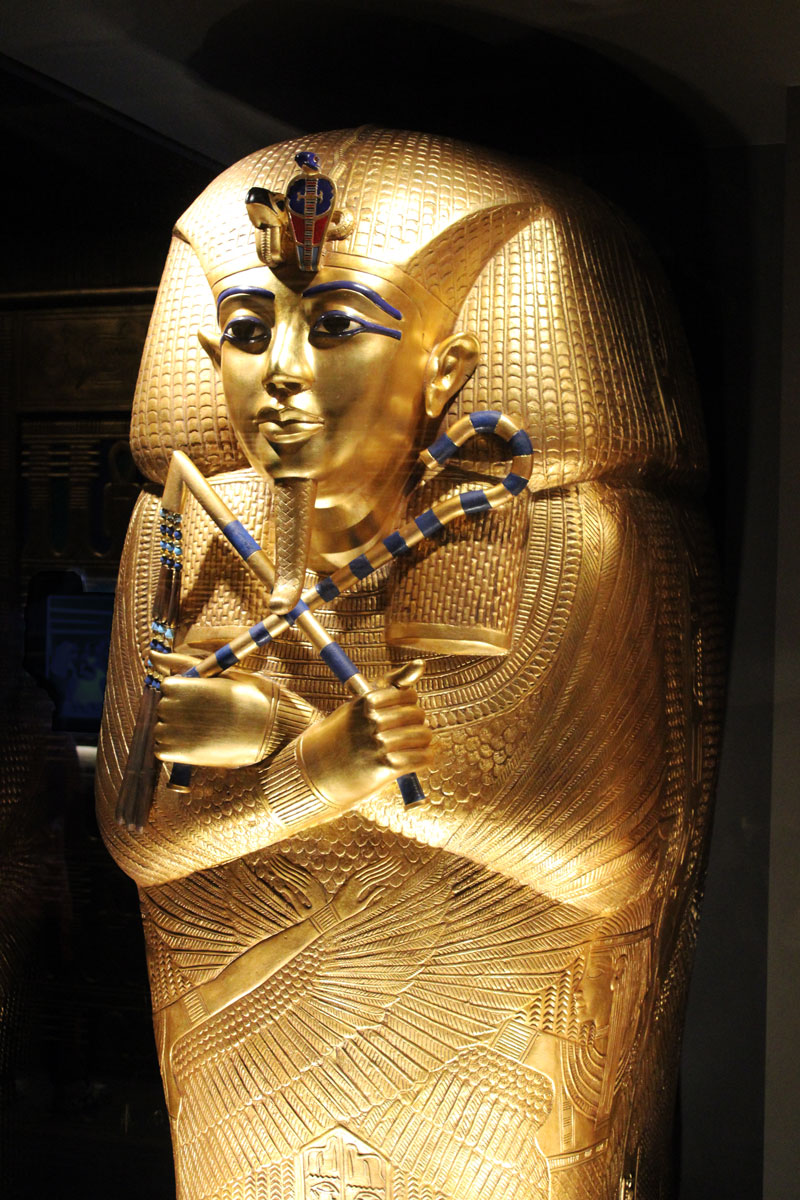
King Tut’s Tomb at the Houston Museum of Natural Science | Credit: Photography ©️ A Texas Guide/Alberto Graulau
Anything else you would like to mention for those who are planning to go to King Tut’s exhibit?
Some other cool things of note: There are brand new accessibility feature. In addition to the three full-sized coffins, there is a touchable reproduction of the lid of the middle coffin featuring buttons that can be pressed to hear visual descriptions of the coffin’s features. This is in support of our low-vision and blind visitors, though everyone can enjoy it.
We also have a Mobile Guide that was designed for all patrons, with a particular focus on our blind or low-vision guests. Detailed verbal descriptions are used throughout the guide in order to translate visual information into spoken language. Script and audio are both available on this platform and are available in both English and Spanish.
Last, we offer an interactive knowledge hunt that can be accessed on personal devices. It features seven challenges for visitors to complete. It takes visitors on an “expedition” to discover amazing specimens and artifacts throughout the Museum. Along the way they will uncover the connections between these objects and King Tut’s Tomb Discovery Experience. – If you want, we can send you QR Codes for the hunt and the Mobile guide.
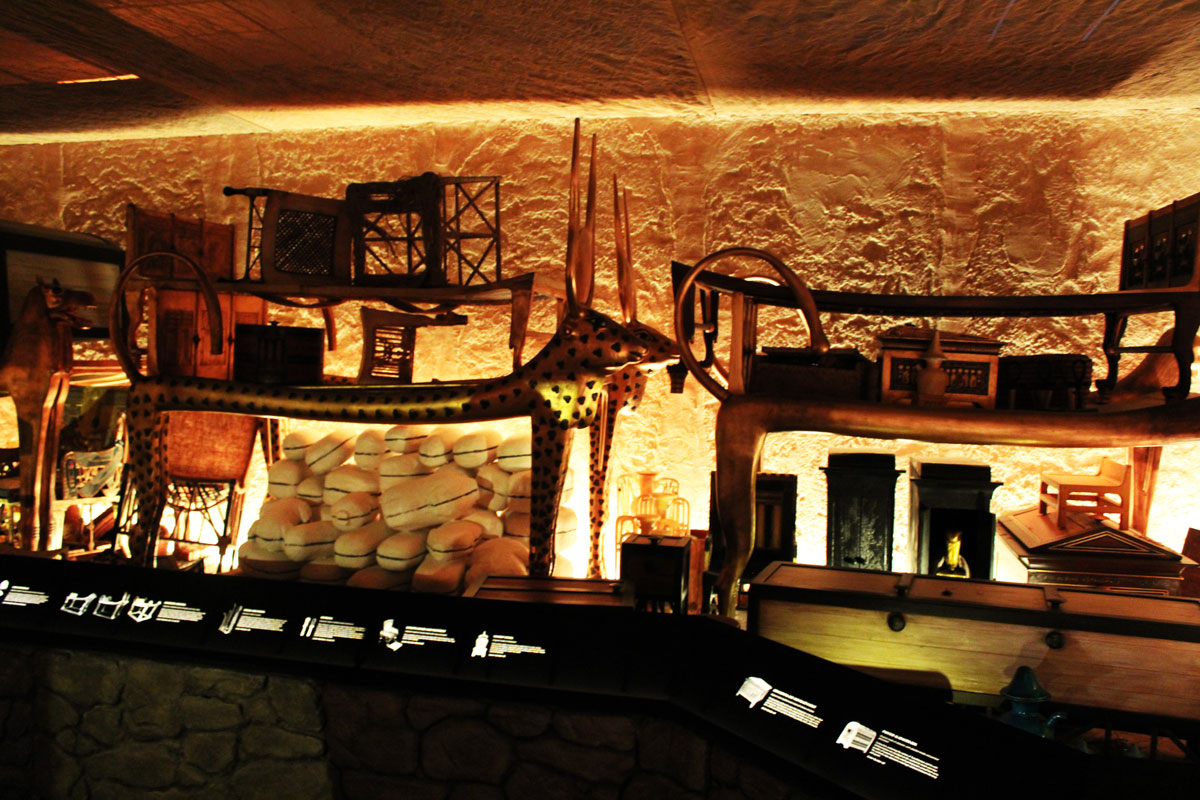
Replica of Artifacts found at King Tut’s Tomb were Commissioned by Egypt | Credit: Photography ©️ A Texas Guide/Alberto Graulau
As part of a perfect day at the museum, can you suggest some favorite restaurants nearby and any favorite dishes?
Bodagas Taco Shop is awesome. It features all sorts of Mexican dishes. The food is fresh and the prices are reasonable. My favorite is the “build your own nachos.” There are so many different items to choose from to put on top!
Fia’s Pizzeria is also outstanding. They feature “build your own personal pizzas” and other Italian food. The two restaurants are next door to one another and have nice patios. They also have good adult beverages!
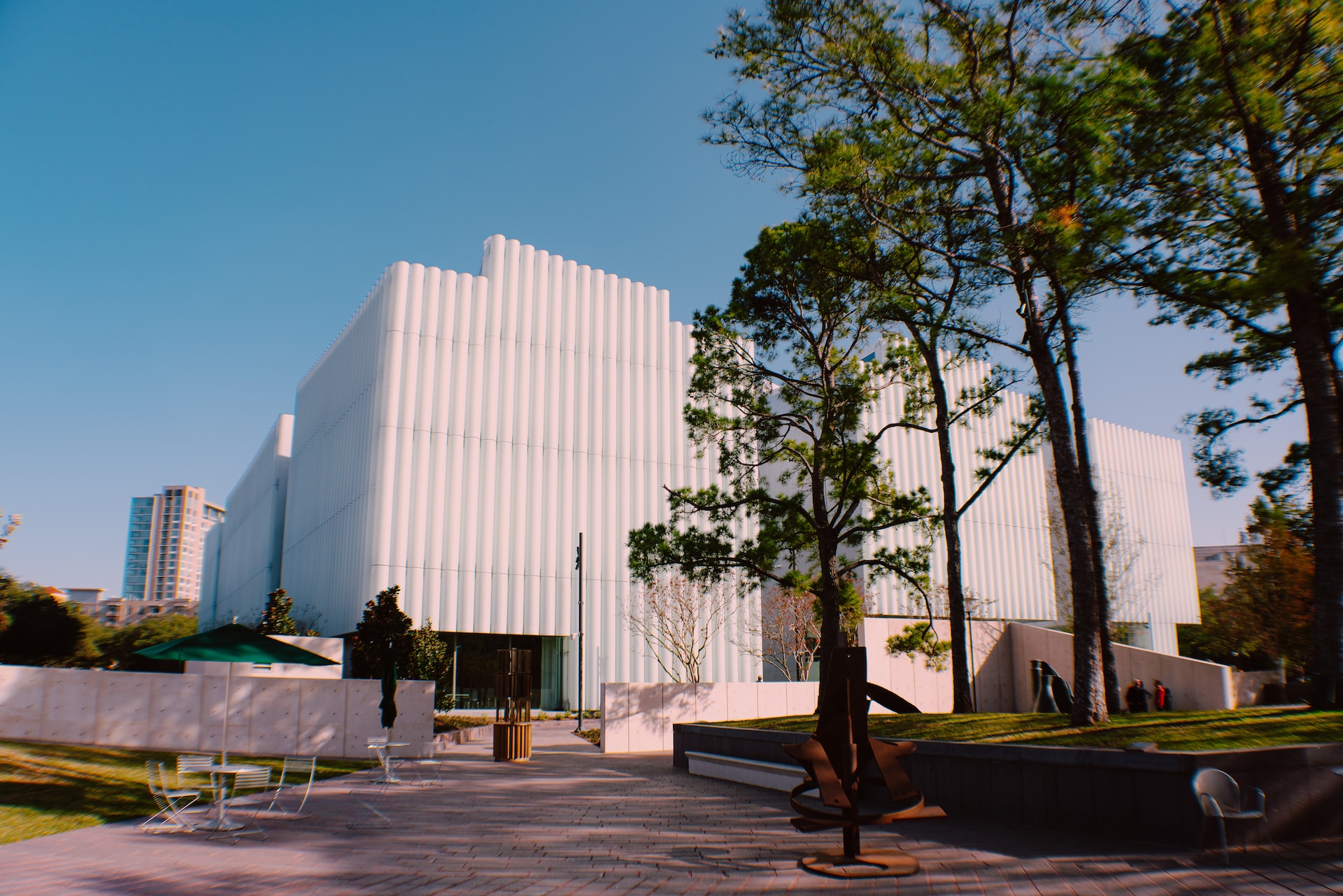
Museum of Fine Arts in Houston Texas | Credit: Photography Unsplash/Adrian N
For anyone who is making a weekend of it are there any other great exhibits or museums a visitor should schedule while they are there? Any other fun things to do in the vicinity or as part of a great Houston weekend?
Sharks! The Meg, The Monsters, & The Myths exhibition featuring a touch tank with live sharks and other marine animals will be opening at HMNS this month. It will be a particularly good choice for families with children.
The Centennial Garden directly across the way from the Museum is a huge and absolutely beautiful walking space. Many people pack a lunch to eat there. The zoo, Miller Outdoor Theater, the Museum of Fine Arts, Children’s Museum, and Health Museum are all walking distance from HMNS. You could spend a whole weekend in this area and never run out of things to do.
Love Texas? Keep coming weekly to atexasguide.com
Instagram: ATexasGuide
TikTok: ATexasGuide
YouTube: ATexasGuide






